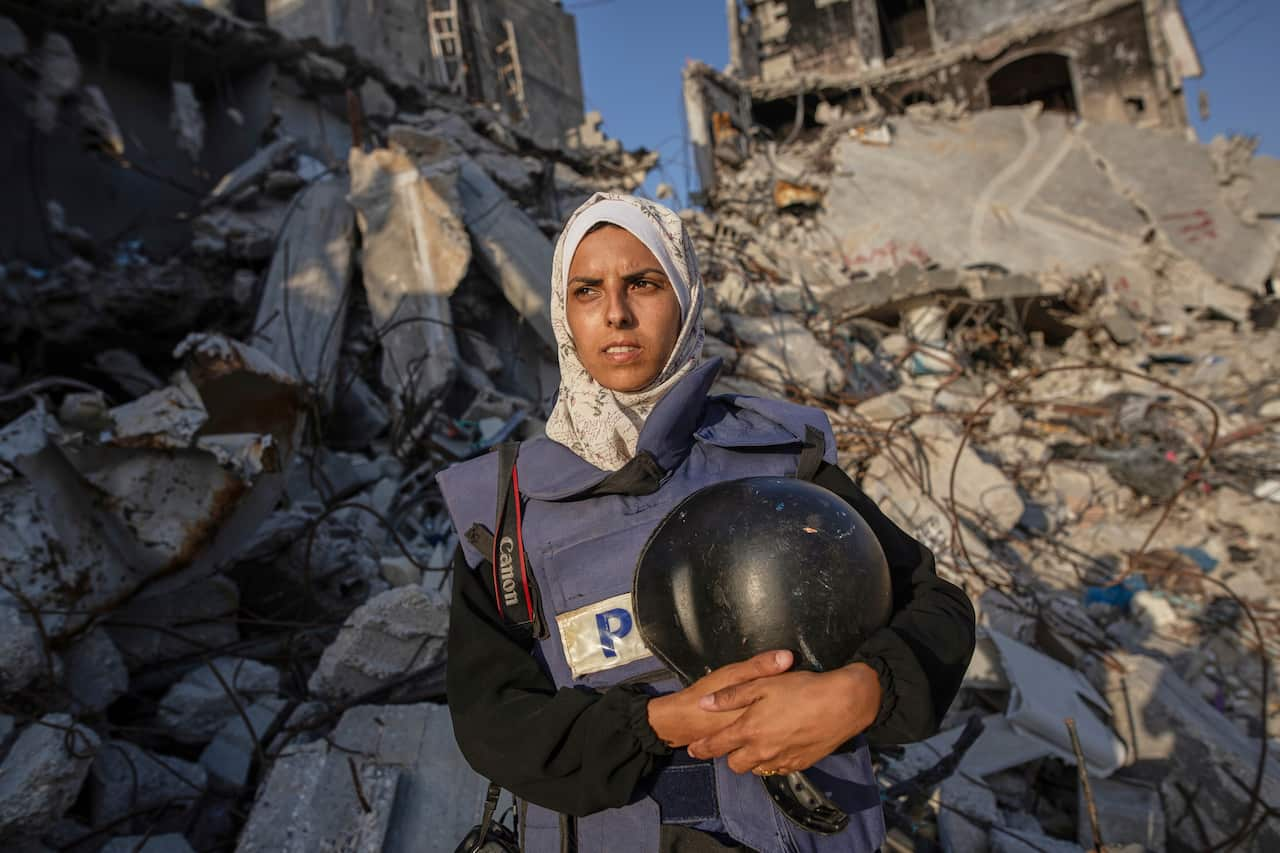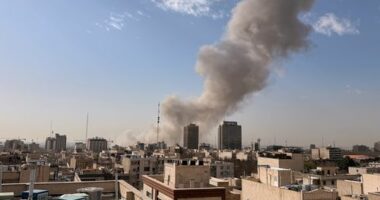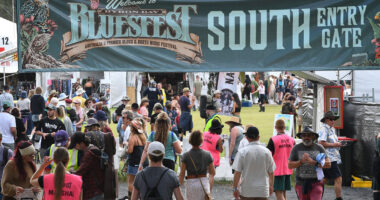Share this @internewscast.com
Experts caution, however, that proving a double-tap strike under international law is far from straightforward and say there could be multiple explanations for the attack.
What are double-tap strikes?
“It’s forbidden, and it’s forbidden for a very good reason — trying to protect rescue workers and rescue efforts and wounded people,” he told SBS News.
Rescue efforts are protected under the Geneva Convention. Should a second attack be aimed at killing rescue workers or preventing the wounded from accessing care, it would be constituted as a war crime, the international treaty states.
Condemnation from the UN and EU
“So it’s shocking — and it’s even more shocking that there is no robust political response.”
Since October 7, at least 240 journalists have been killed in Gaza, according to the Palestinian Journalists Syndicate.

Freelance journalist Mariam Dagga, 33, who had been working with the Associated Press and other outlets during the Gaza war, poses for a portrait in Khan Younis, southern Gaza Strip, on 14 June 2024. Source: AP / Jehad Alshrafi
‘A horrible and tragic mistake’, says academic
“Our goal is to fight terrorists, not journalists, not anyone who is not involved in terrorism,” Israel’s UN ambassador Danny Danon said.
“In a case like this, you don’t fire again unless there is a reason to believe that the first attack did not complete the mission … that’s possibly where there was an incoherence which possibly led to the other attack.”
In a statement issued later on Tuesday, Hamas challenged the Israeli account of the hospital casualties, denying that any of the Palestinians killed were militants.
Double-tap, roof knock, or fatal error?
“The idea is very questionable because often, the people are not given enough time,” Mayroz said, noting the practice was particularly harmful for unaccompanied children or those less mobile. “It’s a very questionable way of trying to later justify the killing of civilians as collateral damage.”












